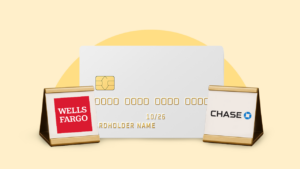NCUA: What it is and how it keeps your credit union deposits safe

Key takeaways
- The NCUA (National Credit Union Administration) insures credit union deposits up to $250,000 per depositor, per institution, per ownership category.
- NCUA insurance provides the same protection as FDIC insurance at banks. Both are backed by the full faith and credit of the U.S. government.
- Joint accounts receive $250,000 coverage per owner, meaning a married couple’s joint account is insured up to $500,000.
- New trust account rules take effect December 1, 2026, simplifying coverage with a maximum of $1,250,000 per owner.
If you keep money at a credit union, your deposits are protected by the National Credit Union Administration (NCUA): the federal agency that insures more than 143 million account holders across the country. The NCUA works much like the FDIC does for banks: if your credit union fails, you’re guaranteed to get your money back up to $250,000 per depositor, per institution, per ownership category.
This protection is backed by the full faith and credit of the U.S. government, making your credit union deposits just as safe as money in a bank.
What is NCUA insurance?
The NCUA manages the National Credit Union Share Insurance Fund (NCUSIF), which guarantees your credit union deposits with the full backing of the U.S. government. Congress established the NCUSIF in 1970 to give credit union members the same peace of mind that bank customers get from FDIC insurance.
The standard coverage is straightforward: the NCUA insures up to $250,000 per depositor, per federally insured credit union, for each ownership category. You don’t need to apply or pay anything extra: Coverage is automatic when you open an account at a federally insured credit union.
Ready to earn more on your savings? Compare Bankrate’s best high-yield savings accounts to find NCUA-insured options offering competitive rates.
How does NCUA insurance work?
Credit union failures are rare, but when they happen, the NCUA steps in to protect members. The agency’s first move is typically to find another credit union willing to take over the failing institution. This means members often don’t experience any disruption to their accounts.
“Usually what the NCUA tries to do is, if the credit union has a fair number of problems and is not going to survive on its own, they’ll try to find another credit union partner that can take on that institution so that the members themselves don’t see any disruption,” says Tom Glatt, a credit union strategy consultant and founder of Glatt Consulting Group.
If a merger isn’t possible, the NCUA liquidates the credit union and returns funds to members, typically within five business days of closure. You’ll receive the full insured balance of your accounts, dollar for dollar, including any posted dividends through the closing date.
What are the limits on NCUA insurance and how can you get the most from it?
Limits on federal insurance for credit unions vary for single and joint accounts.
| Account type | Amount limit |
| Single ownership account (one owner) | Up to $250,000 |
| Joint ownership account (two or more owners) | Up to $250,000 per owner, as long as the primary owner is a member of the credit union. |
| Retirement accounts | Up to $250,000 (separate from other accounts) |
| Trust accounts (current rules) | Up to $250,000 per beneficiary |
| Trust accounts (after Dec. 1, 2026) | Up to $1,250,000 maximum per owner |
How coverage works in practice
Here’s a concrete example: Sarah has $150,000 in a savings account and $100,000 in a money market account at the same credit union. Because her total deposits ($250,000) don’t exceed the single-owner limit, she’s fully insured. If Sarah is married and opens a joint account with her spouse, that joint account gets an additional $500,000 in coverage ($250,000 per owner)—completely separate from her individual accounts.
Keep in mind: New NCUA rules taking effect December 1, 2026, will simplify trust account coverage. The current separate rules for revocable and irrevocable trusts will be combined into a single “trust accounts” category with a straightforward calculation: $250,000 per beneficiary, up to a maximum of $1,250,000 per owner. For most members with less than $1,250,000 in trust deposits, coverage levels will remain unchanged.
What NCUA insurance doesn’t cover
The NCUA only insures deposit accounts. Your coverage does
- Mutual funds
- Stocks and bonds
- Life insurance policies
- Annuities
- Safe deposit box contents
Even if you purchase these products through your credit union, they’re not insured by the NCUSIF. Use the NCUA’s Share Insurance Estimator to calculate your exact coverage.
NCUA vs. FDIC: What’s the difference?
The short answer: not much, from a depositor’s perspective. Both agencies provide $250,000 in coverage per depositor, per institution, per ownership category. Both are backed by the full faith and credit of the U.S. government. The main difference is simply which institutions they cover — the NCUA insures credit unions while the FDIC insures banks.
| NCUA | FDIC |
| Insures credit unions | Insures banks |
| Insures checking, savings, and money market accounts, CDs and IRAs. | Insures checking, savings, money market accounts, CDs, IRAs, money orders, cashier’s checks and some prepaid cards. |
| Doesn’t insure stocks, bonds, mutual funds, annuities, life insurance policies, municipal securities and contents in a safe deposit box. | Doesn’t insure stocks, bonds, mutual funds, annuities, life insurance policies, municipal securities, contents in a safe deposit box, and treasury bills. |
Your decision about whether to use a credit union or bank shouldn’t hinge on which federal agency provides insurance. Both offer equally robust protection.
Are all credit unions federally insured?
All federal credit unions are insured by the NCUA, but some state-chartered credit unions opt for private insurance instead. Private insurers may offer higher coverage limits, but this insurance isn’t backed by the federal government.
Before opening an account, verify your credit union’s insurance status through the NCUA’s searchable database. Federally insured credit unions must display the official NCUA insurance sign at each teller station and on their website.
Bottom line
When your money is in a federally insured credit union, it’s protected by the same government guarantee that backs bank deposits. The $250,000 coverage limit per depositor, per institution, per ownership category means most members are fully protected, and those with larger balances can maximize coverage by using joint accounts, trust structures, or spreading funds across multiple institutions.
Credit union failures are rare, and when they do occur, the NCUA’s track record shows members typically regain access to their insured funds within days. Whether you choose a credit union or a bank, federal deposit insurance remains one of the most reliable protections available for your savings.
NEXT STEPS
- Learn more: Understand how credit unions differ from banks and which is right for you
- Compare rates: See Bankrate’s best credit union savings accounts
- Check your coverage: Use the NCUA Share Insurance Estimator to verify your deposits are fully protected
Why we ask for feedback Your feedback helps us improve our content and services. It takes less than a minute to complete.
Your responses are anonymous and will only be used for improving our website.







